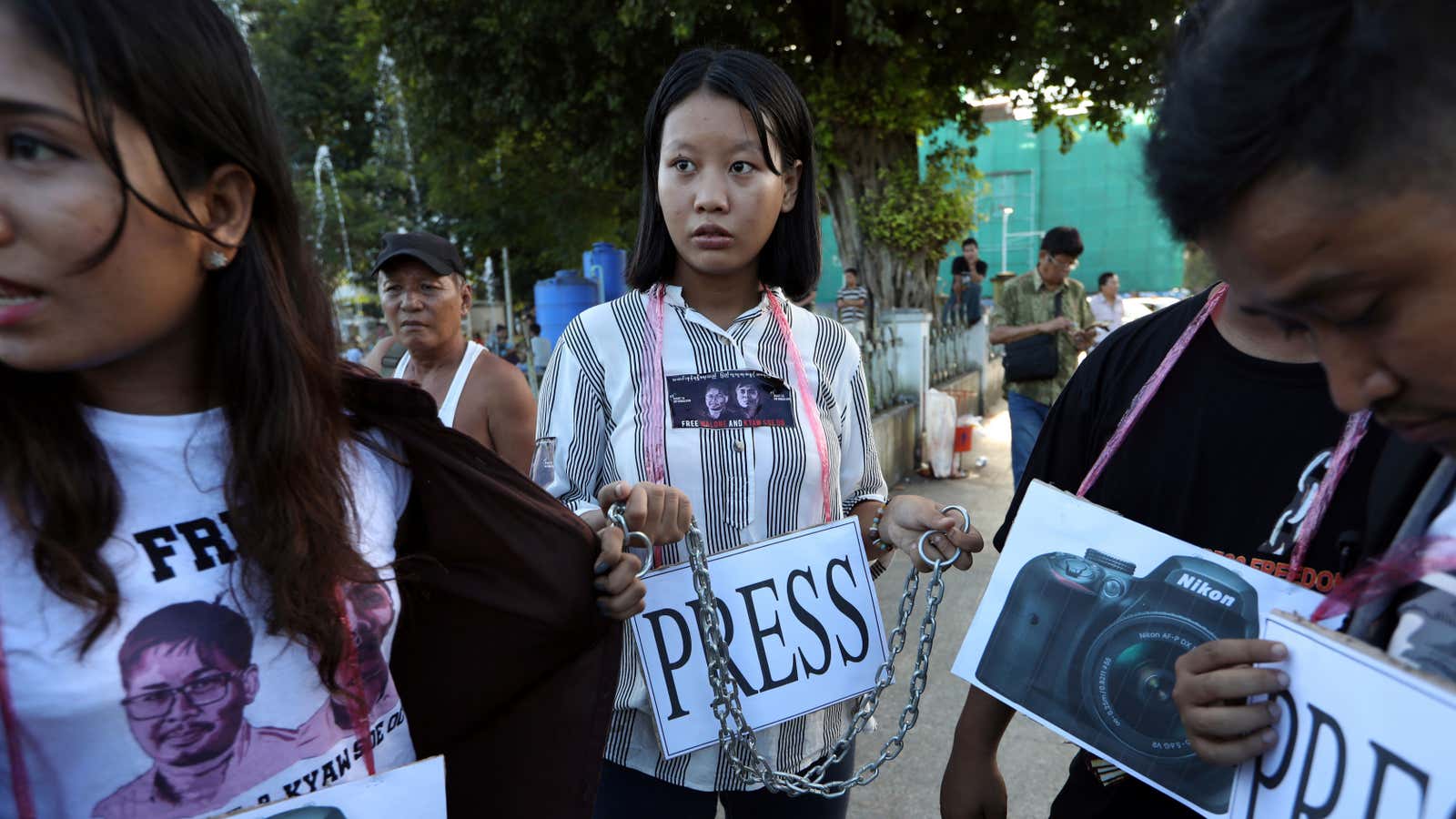This has been a bad month for press freedom around the world.
Last week, prominent Saudi journalist Jamal Khashoggi went missing after entering the Saudi Arabian Consulate in Istanbul. Now Turkish officials say they believe that Khashoggi was murdered on the premises as his fiancée waited outside.
Also last week, word spread that Hong Kong authorities had rejected the visa renewal application of the Financial Times’ Asia news editor, Vincent Mallet, a move that one Human Rights Watch researcher said ”smacked of Beijing-style persecution of critics.” And this weekend, Viktoria Marinova, a Bulgarian investigative reporter, was brutally raped and murdered in the city of Ruse. (While Bulgarian authorities say they do not know if her murder was related to her work as a journalist, Marinova had been investigating alleged corruption in Bulgaria involving European Union funds for the broadcaster TVN, and the European Commission has demanded a full investigation.) She is the third journalist murdered in the European Union this year.
Taken together, the week’s events are a sign of the precarious state of freedom of expression around the world. Open and unchallenged hostility toward the media is no longer limited to a handful of authoritarian states; now, even the president of the United States, the country that enshrined freedom of the press in its constitution, calls journalists “the enemy of the people.”
The situation has gotten so worrying that, earlier this year, more than 300 news publications across the US joined together to defend the role of a free press and denounce Donald Trump’s ongoing attacks on the news media in coordinated editorials.
Reporters Without Borders (RSF), an organization that supports journalists and freedom of speech, releases a yearly review of 180 countries and their relationship with the media. This year’s report shows that 2018 has been an extremely bad year for freedom of the press: “Hostility towards the media, openly encouraged by political leaders, and the efforts of authoritarian regimes to export their vision of journalism, pose a threat to democracies,” it states.
High-profile assassinations of journalists in India, Mexico, Nicaragua, Syria, Afghanistan, Turkey, and Brazil have made headlines over the past year. According to RSF’s ongoing tally, at least 66 accredited or citizen journalists have been killed around the world this year. That’s not counting the 297 accredited or citizen journalists currently imprisoned because of their work. A notable case is that of Wa Lone and Kyaw Soe Oo, the two Reuters journalists who were detained in Myanmar in December 2017 because of their investigation into the killing of 10 Rohingya Muslim men and boys. On Sept. 3, 2018, they were sentenced to seven years in jail for breaching the Official Secrets Act.
As journalists increasingly become the scapegoat of illiberal leaders and the rising tide of populism, anyone concerned with the decline of this fundamental right would do well to remember the words that Thomas Jefferson
in 1787, the year the US Constitution was written. “Were it left to me to decide whether we should have a government without newspapers, or newspapers without a government,” he wrote, “I should not hesitate a moment to prefer the latter.”
